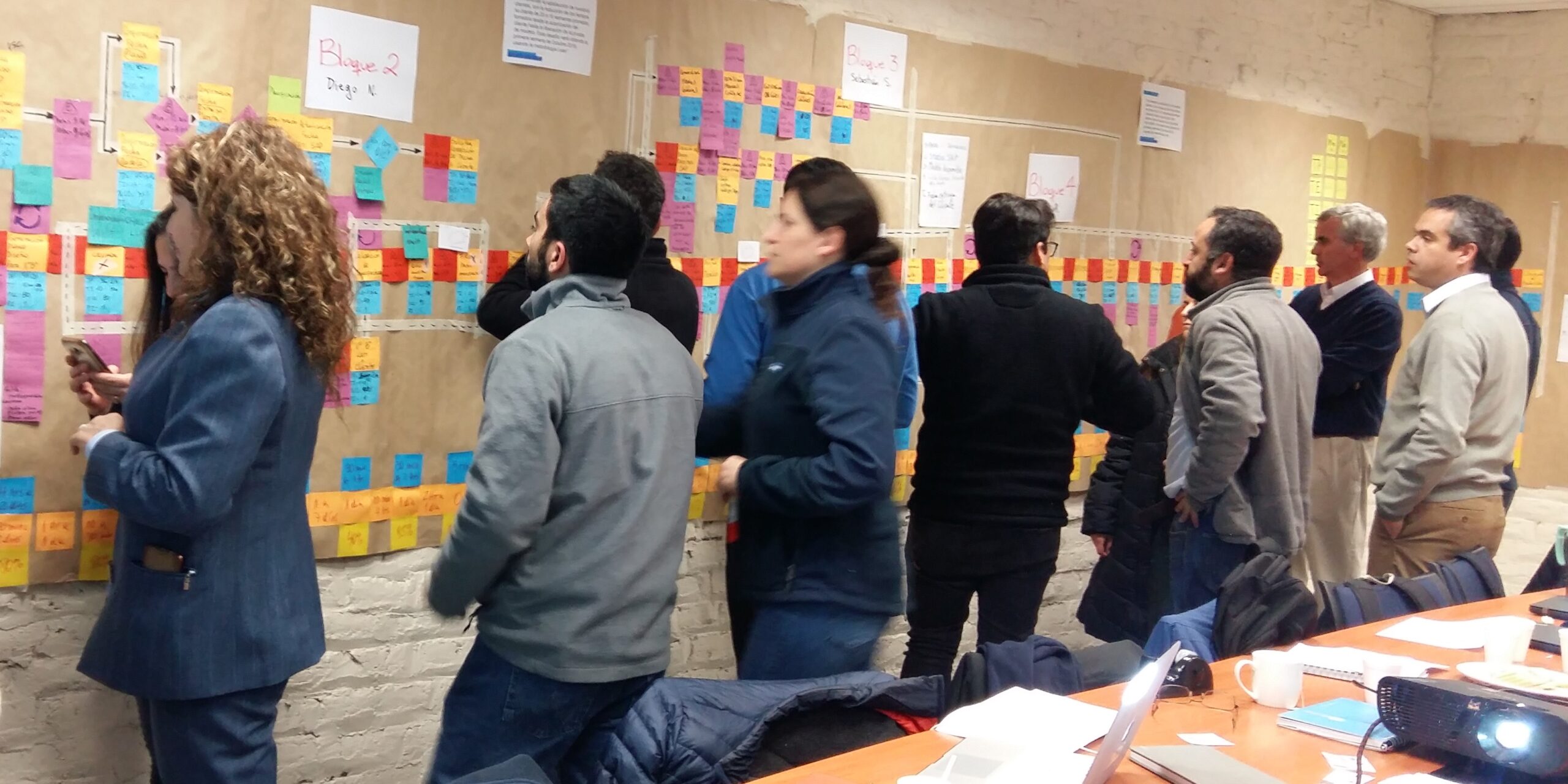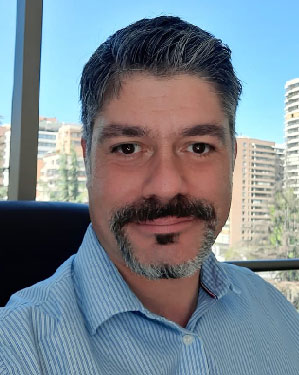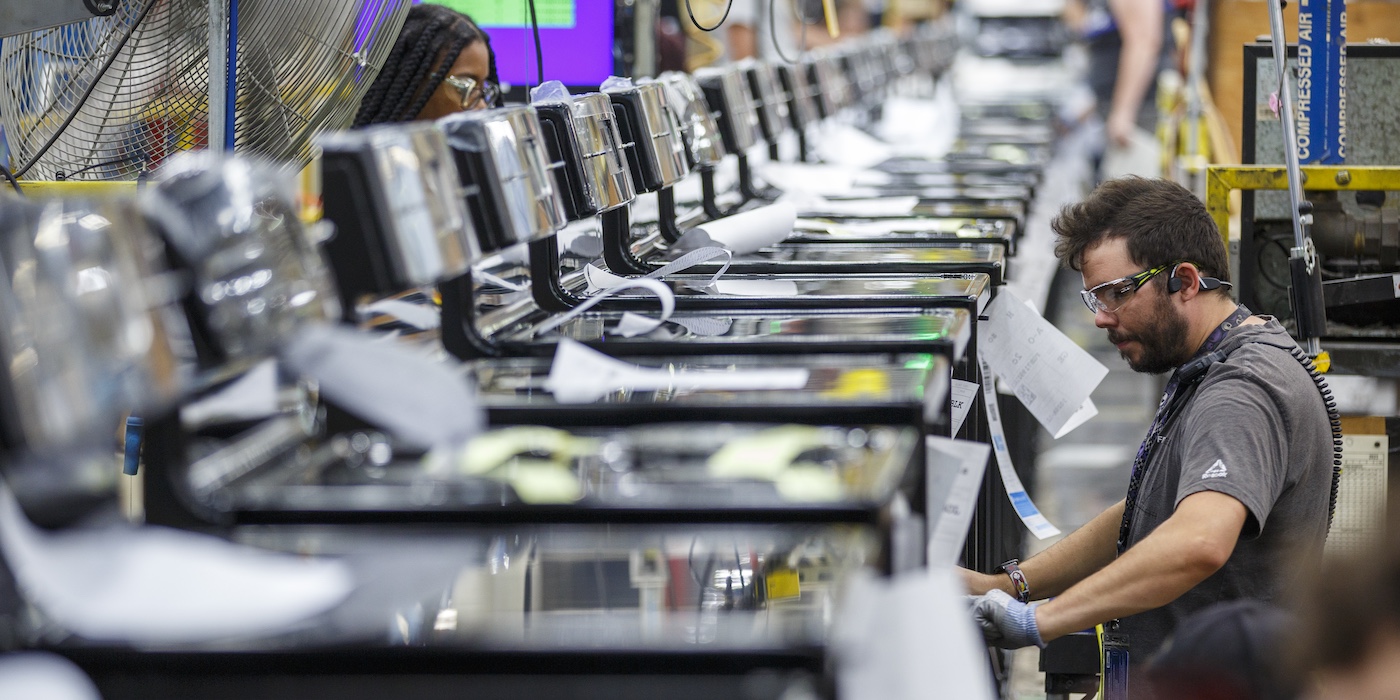
Solving problems by developing people
INTERVIEW – Top leaders at Chilean company Elecmetal talk to us about how lean has transformed their role in the organization and how capability development is fuelling change.
Interviewees: The Elecmetal C-suite
Interviewer: Roberto Priolo, Editor, Planet Lean
Roberto Priolo: José Pablo, let’s start with you. In a previous article for Planet Lean, you discussed how Elecmetal has been leveraging hoshin to engage people in its pursuit of True North. How does this serve the organization at a time of crisis like this?
José Pablo Dominguez: Elecmetal strives to embody the lean logic of solving problems by developing people. Through increased transparency on the problems to solve and a deep discussion on how to solve them, we have managed to form a deeper connection with our people and to give them clarity on what needs to be done. This is incredibly helpful at a time of uncertainty. Chile, like much of the world, is experiencing political, economic, and health-related turmoil, but at Elecmetal, people have the tools to solve problems and understand what we need to do and how.
Along the way, it has been interesting to see how our role as leaders has changed. We are now facilitators, creating an environment in which people are empowered to choose the way forward in our common pursuit of the corporate strategy.
RP: Speaking of leaders, today we have the great opportunity to talk with many of Elecmetal’s C-level executives. Guys, it would be great if each of you could share some of the things you have been working on and what you have learned from Lean Thinking. Carlos, you are Quality Director. Let’s start with you.
Carlos Salinas: For the past two years, I have been leading a cross-functional A3 dedicated to the integration of our supply base. Different areas have been involved in this, from Sales to Deliveries. The first year, we focused on understanding the problem (the left side of the A3), while this year we have been implementing countermeasures and running experiments. One of the interesting things we have seen is that, at first, it was the leadership team driving the development of the A3, until we realized it was very much connected with operations and started to involve people from the front line.
So, we began to collaborate more closely with the operational team, training a few of its members – people who play a leadership role in their area – and bringing them into the A3 team. It was very important for us to do this, as this brought us the invaluable input of the people working at the very end of the value chain, where we consolidate and deliver our products. Today, they are active participants in our Daily Management. People are empowered and largely autonomous in making improvements, which helps us immensely, considering that many of us are still working remotely and that we have people in different geographical locations, who have less direct contact with their managers on a day-to-day basis.
RP: Fantastic! Jorge, do you want to go next? I know you are responsible for Polyfit, a new business venture for Elecmetal.
Jorge Saavedra: Exactly, and Polyfit is the focus of the A3 I have been working on. This is a product we make abroad and import to Chile, with all the logistical challenges that entails. The new business stems from a partnership with a supplier in China, where Covid-19 lockdowns are still the norm. The country’s zero-case policy has created huge logistical challenges for our partners and, by extension, for us. This uncertainty is forcing us diversify Polyfit’s supply base, to ensure all the subcomponents we need for the parts the Chinese are producing for us are available when needed. So, for instance, today we are producing one subcomponent in Peru, which is then shipped to China for assembly into the part, which is then shipped back across the Pacific to us. We are engaging with more players because we foresee further difficulties in the long term.
At the same, we are trying to improve our collaboration and interaction with our Chinese partners, by developing our daily management and value stream maps with them – which has allowed us to identify many opportunities for improvement in the supply of products. On-time deliveries weren’t our only problem, however: our relationship with the Chinese team isn’t always easy either. Cultural differences abound and, in the first few months, we experienced a lot of reciprocal finger-pointing, frustration, and tense interactions. So, one day, we all met to have a frank conversation about how we felt about working with one another. It turned out that we really had the same problem and, by opening up to each other, we began to see the context around them rather than the people who were supposedly responsible for them.
RP: Thanks Jorge. Rodrigo, what about you? What has HR been working on?
Rodrigo Ogalde: With the pandemic, we all found ourselves working remotely from one day to the next. All of a sudden, we couldn’t check on our people and simply had to trust them. This caused a major shift in our leadership stance, making us more collaborative and more akin to coaches and facilitators than to traditional managers. Lean helped us a lot in this transition. The HR department also leveraged it to make Elecmetal ready for the new reality of the work: we did this by bringing people together from across the organization, tapping into their synergies and creativity to create a new system that is based on better and smoother interactions. This was the focus of one of our A3s, which generated huge interest in the company – after all, it referred to something we all were experiencing. Taking the lessons we learned during the pandemic, we gathered the opinions of everyone and collectively created new company policies on remote working and flexible working hours.
RP: Thank you, Rodrigo. Matías, tell us about operations.
Matías Bustos: Over the past couple of years, the Operations department has focused on achieving flow (the topic of one of our A3s) to achieve higher levels of productivity with less effort. We know there is only one way to do that: ensuring that the product flows uninterrupted through the value stream. We have also opened an A3 on achieving zero accidents, and we are making progress in that area too, albeit more slowly than we would like.
In our world, change is constant and incredibly fast. We cannot foresee what’s going to happen a few weeks from now and are forced to adapt all the time. One of the most important shifts we have observed in recent years is in our younger workers. They want to be challenged. They want to know that their work matters. The traditional, command-and-control relationship between manager and employee is a thing of the past. Thanks to lean (in particular, hoshin kanri and A3s), we have been able to get ahead of the curve and embrace our people’s demand for transparency and autonomy. As a result, we have seen a dramatic change in team dynamics: people now bring up and solve problems, rather than simply executing solutions spoon-fed to them by their managers.
RP: Thank you, Matías. Last but not least, Ivan. What have you been up to in the Sales Department?
Ivan Flores: The most recent A3 our department has opened is on margins, in response to the cost disruptions of the past 12 months and the negative impact they have had on our results. We had two clear stages here: one of reaction, to tackle urgent problems; one (we are in it right now) characterized by reflection and deep discussion in a bid to adapt our strategy to the “new normal”.
There are two other A3s I’d like to talk about, and these have been going on for a while. The first one aims to help our 20-people team in Peru, whom we’ve had since 2014, to develop their market. When we started, they lacked an understanding of their problems and the skills and tools they needed to grow their business on their own. I had to travel there constantly to support them. Then, Covid came! During the pandemic, the A3 was like the glue holding us together, even though our gemba was now virtual. At that time, we realized that our customer network wasn’t as strong as we thought. So, we devised an action plan to systematically improve our way of dealing with the work and with our customers. Thanks to these efforts, our Peruvian team could maintain contistency in their way of working, despite a lot of employee turnover, and this continuity wouldn’t have been possible without lean.
The second A3 has accompanied one of our business areas – crushing – through its transition towards becoming an independent line of sales (it’s always been seen as an appendix of the grinding business, and we had been wanting to help it find its own place in the world for quite some time). We started with the A3 to give the area more autonomy before we made the structural change. When the time came for the formal separation, the leader of the A3 naturally became the leader of the new sales line. We were delighted to see the business double its size in just one year. Lean has made us ready for the change: opening the A3 before the transition began gave us structure.
RP: Listening to you all, it’s easy to see how this team shares the same idea of what’s been happening and where you are headed. As leaders, you all seem to have interiorized Lean Thinking. Were you born lean thinkers, or did you learn to be lean thinkers?
IF: I feel like I was perhaps the “least lean” among the leaders in this group, at least in terms of participation. I like to be involved in the nitty gritty of the work and used to closely control the sales operation. With the arrival of lean and the pandemic, however, I had to change my approach and start to trust my team. Lean ensured this transition wouldn’t feel like a leap into the unknown. It gave me a structure to fall back on and taught me to give people more opportunities to grow and a safe space to make change. Personally, it was a huge shift. It, of course, helped that people development has always been in the DNA of Elecmetal.
JS: Indeed, I think this organization was fertile ground for lean. Actually, in many ways, I think we were thinking lean even before we ever did it. Three key lean ideas – customer focus, waste elimination, and a pursuit of excellence – have always been part of our way of thinking and acting. Lean and Elecmetal are a match made in heaven!
MB: I think that as a leadership team, we all really enjoy doing things with our people, “getting our hands dirty”. The hardest part is to truly engage others in accompanying you on this journey, and I believe that is something that can be learned.

RP: Any final thoughts on lean in a crisis?
IF: Crises can be great catalysts for improvement, but to truly transform a business you need to be “hungry”. You need to see problems where others see none. You need to want to go the extra mile and always aspire for more. At Elecmetal, we constantly challenge ourselves and the good thing is that, for those craving challenges, lean is like a buffet!
JPD: Crises have taught us a lot, but I agree that we don’t need them to continue to improve. We already have lean keeping us on our toes.
Thanks to lean – with the use of hoshin, VSM, A3s and other tools – we have been able to weather the storm and obtained great results, all fueled by people development. That’s how we got half of our workforce switching to remote working in no time and the other half continuing to work in safety during the pandemic. That’s how we kept fulfilling the needs of our customers despite the difficult circumstances we experienced.
All around the world, businesses are under increasing scrutiny. Customers challenge us on the quality and speed of our service and products; our communities expect us to be outstanding corporate citizens who are mindful of their environmental footprint; our employees, especially those of younger generations, want challenging, fulfilling and meaningful jobs. Elecmetal is taking these challenges in its stride, providing people with development opportunities, minimizing our impact on the environment, and constantly improving our processes and quality. We are achieving this by injecting transparency into our way of working and by embodying our mantra of “solving problems by developing people”. Elecmetal has been around for over 100 years, and I believe that, by reinventing ourselves, we are not only building our future, but also redefining what it means to be a business in the 21st century.
THE COACH COMMENTS
By Rodrigo Calderon, Lean Institute Chile

I have been experiencing this lean journey firsthand, and it’s been fascinating to see how Elecmetal has been able to face up to the complexity we are experiencing. There is a transformation here that is alive and constantly evolving. The countless experiments that the company runs in different areas are all connected to their purpose, with process changes that respond to every problem they encounter and a great effort to develop people by helping them see how their work contributes to the overall success of the business. The management system they have established solidifies routines and the behaviors of their leaders have become examples for the teams, leading to a collective shift in the way of thinking. Elecmetal’s transformation demonstrates that lean helps us to answer complicated questions and to tackle very concrete problems day after day.
THE INTERVIEWEES (in order of appeareance)
José Pablo Dominguez is General Manager at ME Elecmetal South America.
Carlos Salinas is Quality Manager at ME Elecmetal South America.
Jorge Saavedra is Innovation Manager at ME Elecmetal South America.
Rodrigo Ogalde is HR Manager at ME Elecmetal South America.
Matías Bustos is Operations Manager at ME Elecmetal South America.
Ivan Flores is Sales Manager at ME Elecmetal South America.
Read more


FEATURE – By looking at two practical examples, the authors discuss the cognitive shift towards learning and continuous improvement that takes place in a lean transformation.


WOMACK'S YOKOTEN - Given the name of this column, it only makes sense to analyze the word yokoten. So, how can we effectively help others to apply what we learn at the gemba? What makes yokoten successful?


INTERVIEW – Learn how Lean Thinking helped GE Appliances improve performance, develop people, and build a resilient, customer-focused, and learning-driven organization.


CASE STUDY – Faced with safety and quality issues, this Brazilian manufacturing plant installed a dojo, and the results are very promising.

